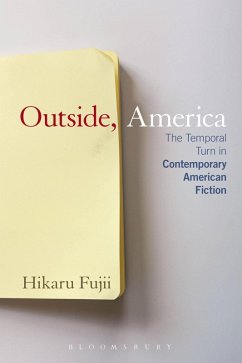The idea of the "outside" as a space of freedom has always been central in the literature of the United States. This concept still remains active in contemporary American fiction; however, its function is being significantly changed. Outside, America argues that, among contemporary American novelists, a shift of focus to the temporal dimension is taking place. No longer a spatial movement, the quest for the outside now seeks to reach the idea of time as a force of difference, a la Deleuze, by which the current subjectivity is transformed. In other words, the concept is taking a "temporal turn."
Discussing eight novelists, including Don DeLillo, Richard Powers, Paul Theroux, and Annie Proulx, each of whose works describe forces of given identities-masculine identity, historical temporality, and power, etc.-which block quests for the outside, Fujii shows how the outside in these texts ceases to be a spatial idea. With due attention to critical and social contexts, the book aims to reveal a profound shift in contemporary American fiction.
Discussing eight novelists, including Don DeLillo, Richard Powers, Paul Theroux, and Annie Proulx, each of whose works describe forces of given identities-masculine identity, historical temporality, and power, etc.-which block quests for the outside, Fujii shows how the outside in these texts ceases to be a spatial idea. With due attention to critical and social contexts, the book aims to reveal a profound shift in contemporary American fiction.


